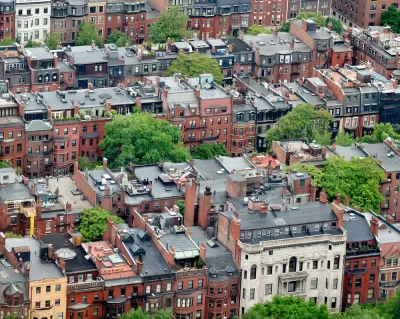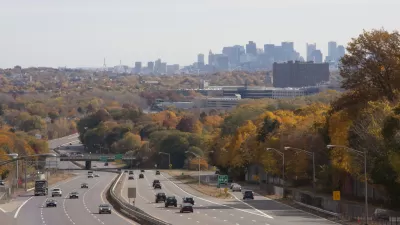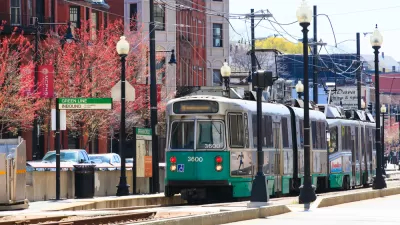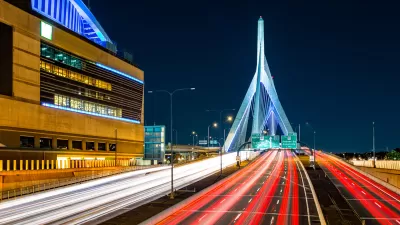New analysis explores every city and suburb in the Boston region to reveal the tools of multi-family housing obstruction—sometimes it takes more than zoning to block apartments from getting built.

"Thanks to a thicket of zoning rules, the suburban communities of Greater Boston have lots of ways to make it difficult to build apartments and other multifamily housing that many of their residents don’t want," writes Tim Logan.
That thicket has become much more defined, thanks to new research by a coalition of major housing industry and advocacy groups that provides a comprehensive review of zoning laws in Eastern Massachusetts. To complete the "The State of Zoning for Multi-Family Housing in Greater Boston" report, researcher Amy Dain examined the zoning codes and housing plans of 100 Eastern Massachusetts municipalities.
In Dain's own words, quoted in the article, the report attempts to define "the aggregate, de facto plan for building multifamily housing across Greater Boston." To summarize the findings of the report, Dain uses the phrase "paper wall" to describe the regulations, like lot size requirements, parking minimums, age restrictions — that block multifamily housing even in places where zoning allows for it.
Logan provides an example of how extra regulations can sometimes supersede the nominal intentions of zoning in the Boston area:
The Town of Dover, for instance, technically allows apartment buildings but requires that 25 percent of units in a new building be affordable, that 40 percent be set aside for senior citizens, and that the project contain no more than four units per acre — a density more common to single-family homes with yards. No project has ever been permitted in Dover under those rules, Dain noted.
According to Logan, one prescription suggested in the report is a more regional approach to planning.
FULL STORY: Study highlights local rules that block new housing in Greater Boston

Alabama: Trump Terminates Settlements for Black Communities Harmed By Raw Sewage
Trump deemed the landmark civil rights agreement “illegal DEI and environmental justice policy.”

Planetizen Federal Action Tracker
A weekly monitor of how Trump’s orders and actions are impacting planners and planning in America.

Why Should We Subsidize Public Transportation?
Many public transit agencies face financial stress due to rising costs, declining fare revenue, and declining subsidies. Transit advocates must provide a strong business case for increasing public transit funding.

Understanding Road Diets
An explainer from Momentum highlights the advantages of reducing vehicle lanes in favor of more bike, transit, and pedestrian infrastructure.

New California Law Regulates Warehouse Pollution
A new law tightens building and emissions regulations for large distribution warehouses to mitigate air pollution and traffic in surrounding communities.

Phoenix Announces Opening Date for Light Rail Extension
The South Central extension will connect South Phoenix to downtown and other major hubs starting on June 7.
Urban Design for Planners 1: Software Tools
This six-course series explores essential urban design concepts using open source software and equips planners with the tools they need to participate fully in the urban design process.
Planning for Universal Design
Learn the tools for implementing Universal Design in planning regulations.
Caltrans
Smith Gee Studio
Institute for Housing and Urban Development Studies (IHS)
City of Grandview
Harvard GSD Executive Education
Toledo-Lucas County Plan Commissions
Salt Lake City
NYU Wagner Graduate School of Public Service





























